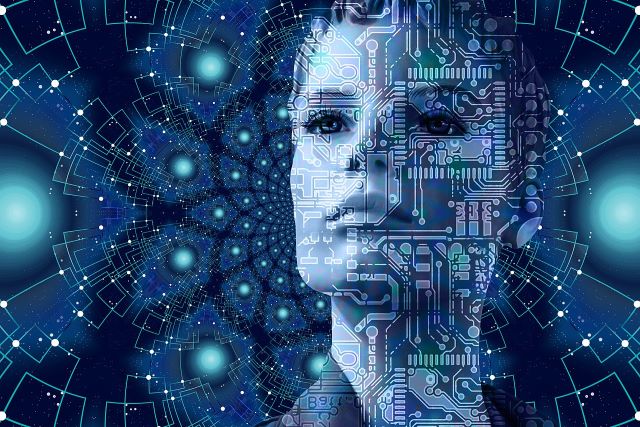
UNESCO Member States designated March 19 as the International Day for Digital Learning, which was first celebrated in 2024. The second edition of the International Day of Digital Learning took place under the theme “Digital Learning Realities in Low-Resource Contexts,” as most teachers and learners work in contexts where access to digital technologies is constrained.
On the 2025 International Day for Digital Learning, UNESCO highlighted these realities to explore the many moments when policymakers, teachers, learners, and families create practical ways to enrich learning with available digital technologies.
On March 28, 2025, IEEE Try Engineering, an online pre-university engineering education resource sponsored by IEEE, IBM, and Try Science, will celebrate AI Literacy Day.
The nationwide event is designed to increase awareness and understanding of AI by exploring the question, “What is AI?”
Digital Promise, which aims to shape the future of learning and bring together solutions across research, practice, and technology, is hosting a webinar to help educators assess AI tools for ethics, equity, and effectiveness before adopting them.
In 2023, San Diego State University became the first of the 23 universities in the California State University (CSU) system to launch an artificial intelligence (AI) micro-credential program.
In 2025, CSU announced a public-private initiative with tech companies, including Adobe, Alphabet (Google), AWS, IBM, Instructure, Intel, LinkedIn, Microsoft, NVIDIA, and OpenAI.
According to an announcement from California Governor Gavin Newsom’s Office, this initiative aims to leverage the power of artificial intelligence to create an AI-empowered higher education system.
The adoption of AI technologies within CSU will make training, learning, and teaching tools—including ChatGPT—available across all universities in the system.
This ensures that more than 460,000 students and 63,000 faculty and staff within the CSU have access to these cutting-edge tools.
CSU Chancellor Mildred García stated that the strategy will enhance the educational experience for students across all fields of study, empower faculty in their teaching and research endeavors, and contribute to building a highly educated workforce that will drive California’s future AI-driven economy.
CSU awards nearly half of the bachelor’s degrees in the state and supports the creation of over 209,000 jobs annually, with one in ten employees in California being a CSU alumnus.
Despite California being home to over 30 of the world’s top 50 AI firms, more than 50% of the AI workforce in the United States comprises international workers.
To address this, CSU is taking a significant step in developing California’s AI workforce. Central to this effort is the AI Workforce Acceleration Board, a collaborative initiative involving nearly a dozen leading tech companies and the Governor’s Office.
This board will identify and advocate for the AI skills essential to California’s workforce and economy.
The advisory board will also include CSU representatives who will collaborate to foster innovation and drive interdisciplinary applications of AI.
They will organize a series of AI challenges to encourage collaboration among CSU students and faculty on pressing issues, such as climate change and housing affordability, using AI technologies to create impactful solutions.
Additionally, CSU will collaborate with OpenAI to deploy ChatGPT Edu—a version of ChatGPT equipped with advanced tools, security, and controls specifically designed for educational institutions.
This effort ensures that all 23 campuses within the nation’s most extensive public four-year university system—from Cal Poly Humboldt in Northern California to San Diego State University in the south—will have equitable access to ChatGPT.
This will enable students, faculty, and staff to utilize AI in ways that accelerate learning, optimize workflow efficiency, and foster cross-departmental collaboration.
Ed Clark, CSU’s Chief Information Officer, emphasized that CSU has two key goals: to equip students with the skills necessary to leverage these powerful tools and to transform institutional practices through the use of AI, ultimately serving the nation’s most extensive public university system more effectively.
On 28 March, we celebrate #AILiteracyDay 🌐 This nationwide event increases awareness and understanding of AI by exploring the question "What is AI?" Discover our AI collection page for engaging resources, lesson plans, and eBooks to make learning AI fun! https://t.co/x1SLBHgaUL pic.twitter.com/b0KUMan4c7
— IEEE TryEngineering (@TryEngineering) March 26, 2025
What is AI literacy? Learn how educators and leaders can prepare learners to navigate AI systems and tools responsibly: https://t.co/IfgHMvYvlt #EdTech #AILiteracyDay
— Digital Promise (@DigitalPromise) March 28, 2025
Last chance! Our March 28 webinar for #AILiteracyDay is almost here—have you registered?
Learn how to critically assess AI tools for ethics, equity, and effectiveness before adopting them. Learn More: https://t.co/CdzRqqlUSz #AILiteracyDay #EdTech pic.twitter.com/r7N15JkD2L
— Digital Promise (@DigitalPromise) March 27, 2025
Join us tomorrow for #AILiteracyDay!! https://t.co/qSFyFP37dt pic.twitter.com/MEKvmt8z55
— Alana Winnick (@AlanaWinnick) March 28, 2025
The U.S. Army Corps of Engineers has been tasked with…
Brown and Caldwell, a leading environmental engineering and construction firm,…
Humboldt State University, one of four campuses within the California…